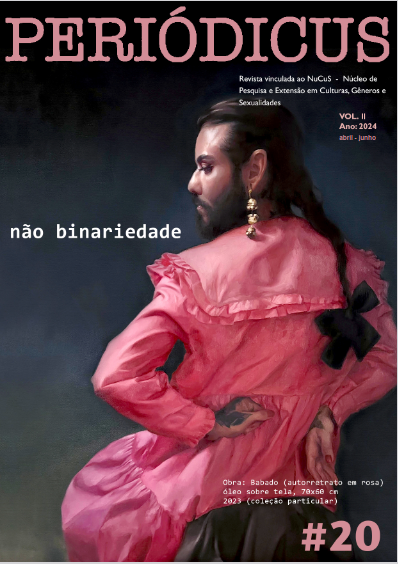Reading literature as a starting point in the construction of an autoethnographic study on the intersectionality
DOI:
https://doi.org/10.9771/peri.v2i20.56975Abstract
Autoethnography is an important methodology that allows the expression of dissident bodies. The reading of a literary book and the construction of reading diaries, as a starting point for autoethnographic reflection, is still little explored. Here, I start from the question: what is it to be a gay scientist? Starting from this question and the experience of a teacher the proposal of this study was to perform an autoethnographic analysis reading and interpreting The life of Galileo by the writer Bertolt Brecht. To this end, a literary reading journal and an analysis reflecting with theories and these experiences was constructed keeping in mind how the vulnerability of dissident bodies, can be in alliance for the uses and responsible work with sciences. In conclusion, the construction of a 1-year autoethnographic diary of reading a book of literature allowed us to conduct a record, denouement and cultural critique of an important moment, which touches on points of intersectionality, about the context of the covid-19 pandemic.
Downloads
Downloads
Published
How to Cite
Issue
Section
License
Copyright (c) 2024 Daniel Manzoni-de-Almeida

This work is licensed under a Creative Commons Attribution-NonCommercial 4.0 International License.
Authors who publish in this journal agree to the following terms:
Authors retain copyright and grant the journal the right of first publication, with the work simultaneously licensed under a Creative Commons Attribution Noncommercial License that allows the work to be shared with acknowledgment of authorship and initial publication in this journal, but prohibits commercial use.
Authors are authorized to enter into separate additional contracts for non-exclusive distribution of the version of the work published in this journal (e.g., publishing in an institutional repository or as a book chapter), with acknowledgment of authorship and initial publication in this journal.
Authors are permitted and encouraged to publish and distribute their work online (e.g., in institutional repositories or on their personal website) at any point before or during the editorial process, as this can generate productive changes and increase the impact and citation of the published work (see The Effect of Open Access).








